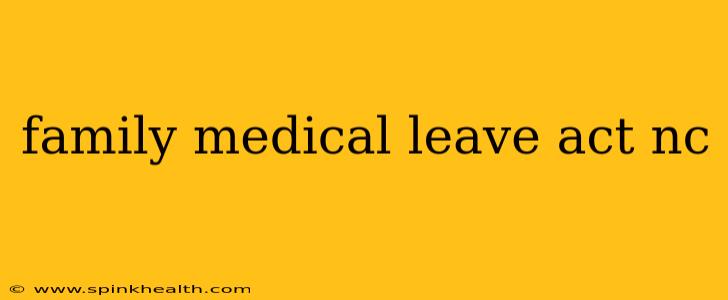The birth of a child, a serious illness, or the need to care for a family member—life throws curveballs, and sometimes, we need time away from work to navigate these challenges. In North Carolina, as in the rest of the United States, the Family and Medical Leave Act (FMLA) offers a lifeline for eligible employees, providing job-protected, unpaid leave. But understanding the intricacies of FMLA can feel like navigating a maze. This guide aims to illuminate the path, offering clarity and answering common questions about FMLA in the Tar Heel State.
What is the Family and Medical Leave Act (FMLA)?
Imagine this: Sarah, a dedicated marketing manager in Charlotte, just welcomed her first child. The joy is immense, but so is the exhaustion. She needs time to recover and bond with her newborn. FMLA steps in, offering Sarah the ability to take unpaid, job-protected leave for a specific period. This means her employer is legally obligated to hold her position for her while she's away, ensuring she can return to her job without penalty. This isn't just for new parents; FMLA also covers serious health conditions for the employee themselves, or for the care of a seriously ill family member.
Who is Eligible for FMLA Leave in North Carolina?
Eligibility isn't a one-size-fits-all affair. To qualify for FMLA leave in North Carolina, you generally must meet several criteria. These requirements include:
- Working for a covered employer: Your employer must employ 50 or more employees within a 75-mile radius of your workplace.
- Working a sufficient number of hours: You must have worked for your employer for at least 12 months and have worked at least 1,250 hours during those 12 months.
- Having a qualifying reason for leave: This could be the birth or adoption of a child, caring for a seriously ill spouse, child, or parent, or experiencing a serious health condition that prevents you from performing your job duties.
What are Qualifying Reasons for FMLA Leave in NC?
Let's delve into the specifics of qualifying reasons. The situations covered are often intensely personal and can be emotionally challenging. Understanding the criteria is crucial.
Birth and Adoption of a Child:
This is a straightforward aspect of FMLA. It covers leave for the birth of a biological child, the placement of a child for adoption or foster care, or the birth of a child through surrogacy.
Caring for a Seriously Ill Family Member:
This is where things get nuanced. "Seriously ill" means a condition that requires either inpatient care or continuing treatment by a healthcare provider. This could range from a major surgery to a chronic condition requiring ongoing management. The family member must be a spouse, child (biological, adopted, or foster), or parent.
Employee's Serious Health Condition:
This covers situations where the employee themselves has a serious health condition that prevents them from performing their job duties. Again, "serious" means requiring inpatient care or continuing treatment.
How Much Leave Can I Take Under FMLA in North Carolina?
Generally, eligible employees can take up to 12 weeks of unpaid, job-protected leave within a 12-month period. However, it’s vital to check your employer’s specific policies, as they may offer additional leave benefits beyond the minimum federal requirements.
Can My Employer Deny My FMLA Leave Request?
While employers are legally obligated to provide FMLA leave to eligible employees, there are certain circumstances where a request might be denied. These typically involve situations where the leave request isn't compliant with FMLA regulations or if the employer can demonstrate that granting the leave would cause undue hardship to their business operations. This is rare and requires a substantial justification on the employer's part.
What Happens After My FMLA Leave?
Upon your return, your employer must reinstate you to your previous position or an equivalent one with comparable pay, benefits, and other terms and conditions of employment. Remember to communicate with your employer throughout your leave to ensure a smooth transition back to work.
What if I Need More Than 12 Weeks of Leave?
If your situation requires more extended leave than the 12 weeks provided by FMLA, you may need to explore other options such as short-term disability insurance, paid time off (if available), or other leave options offered by your employer or through state programs. Consulting with a human resources professional or employment lawyer can be helpful in such situations.
This guide provides a general overview of FMLA in North Carolina. It is always recommended to consult with your employer's human resources department or seek legal advice for specific situations to ensure compliance and to protect your rights. Navigating FMLA can be complex; understanding your rights is the first step toward securing the time you need to address important family and health matters.

